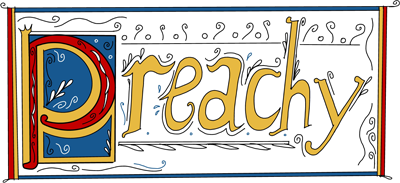Bill The Mailman
Raised by German immigrants in a small West Texas town, I grew up hearing “Hitler was right on the race issue” over dinner. At sixteen, I ran away. I was queer, punk, and half-feral when an insular, all-Black church rescued me. For ten years, I lived a cloistered, communal life, trying and failing to become a saint. When it became impossible to stay, I had to find my way in a world where I hadn’t yet learned to live.
The following is an excerpt from my debut book, Some Kinda Love: A Life in Four Parts.
I cast off rock-and-roll at the church’s gate, but rock-and-roll brought me and taught me devotion. Idolatry and truth, salvation and death—all were present in rock-and-roll done right. Before a single white kid danced to the beat, the church was holy ground, where saints danced, birthing their beat in exuberance and hope—no dead Baptists or high church, but sanctified people given over to the Spirit. Rock-and-roll was a divergence, gospel’s inverse, religion in reverse.
In his essential book, The Gospel Sound: Good News and Bad Times, Tony Heilbut speaks to the connection. Of rock, he writes, “The very tension between beats, the climax we anticipate almost subliminally, is straight out of the church.” Little Richard didn’t invent this audacity; he carried it down the church steps. The saints, poor and oppressed, least among men, approached the throne of God with the same audacity. They had a telephone to glory. The music was a living thing, more than the sum of its parts; the beat was heartbeat, comforting, offering people strength to live.
Good as gospel music was, the church couldn’t contain it. Backsliders carried it out and used it for base purposes. For some, the chance to defile the holy was doubly sweet. Sold like mad, number one with a bullet. The beat that was life to the church became sex in the street.
Jesus is for the last and least. In the beginning, the music was for the lost, those born of truth. And so, once, was rock-and-roll. None of that matters now. Gospel music gave up the ghost long ago, and rock-and-roll is dead.
The music we made in church was beautiful and often thrilling. Outside of church, I missed my records. I tried listening to Christian rock, but the flaw was fatal and glaring. Lacking the spirit of rebellion, it was all veneer, a saccharine crust.
They say what you give to God gets returned at an increase. In this case, it was true. I gave up rock-and-roll and received the root. I found a trove of old gospel records at the Austin Public Library: The Davis Sisters, the Ward Singers, the Roberta Martin Singer, Sister Rosetta Tharpe. My new favorite band was the Caravans. Mahalia Jackson’s voice held curative powers—it was a living thing, a battle-axe, a cure.
On Sunday mornings, I’d get up early to listen to Bill “The Mailman” Martin’s gospel program on KAZI. He didn’t play much of the really good stuff, but it was good enough—Shirley Caesar, James Cleveland, “Rough Side of the Mountain.” After the gospel program came of freedom songs—Gil Scott-Heron, Sweet Honey in the Rock, Sarah Webster Fabio. Speaking truth to power and singing gospel felt like the same thing.
When I got to the church, they preached me out of my books. Burroughs and Genet weren’t edifying. I went to the bookstore and asked for help.
“I’m looking for literature with a Christian perspective.”
The store clerk paused and hummed. There’s T. S. Eliot, she said, and of course Milton. I tried “The Wasteland” and The Inferno and found my old problem with comprehension was reversed. Now The Book of Psalms made sense; these didn’t.
In the same library where I found gospel records, I found books to meet my needs. Gwendolyn Brooks, Carolyn Rogers, Nikki Giovanni, Langston Hughes. As with music, I got more than I gave up. All Black culture, even the profane, was sacred, because blood was shed for it.
Robin Storey Dunn’s writing has appeared in Gertrude, Perfect Sound Forever, Pidgeonholes, Rue Scribe, and The Windhover. She has also received an honorable mention in the 2020 Tusculum Review Nonfiction Prize contest.
